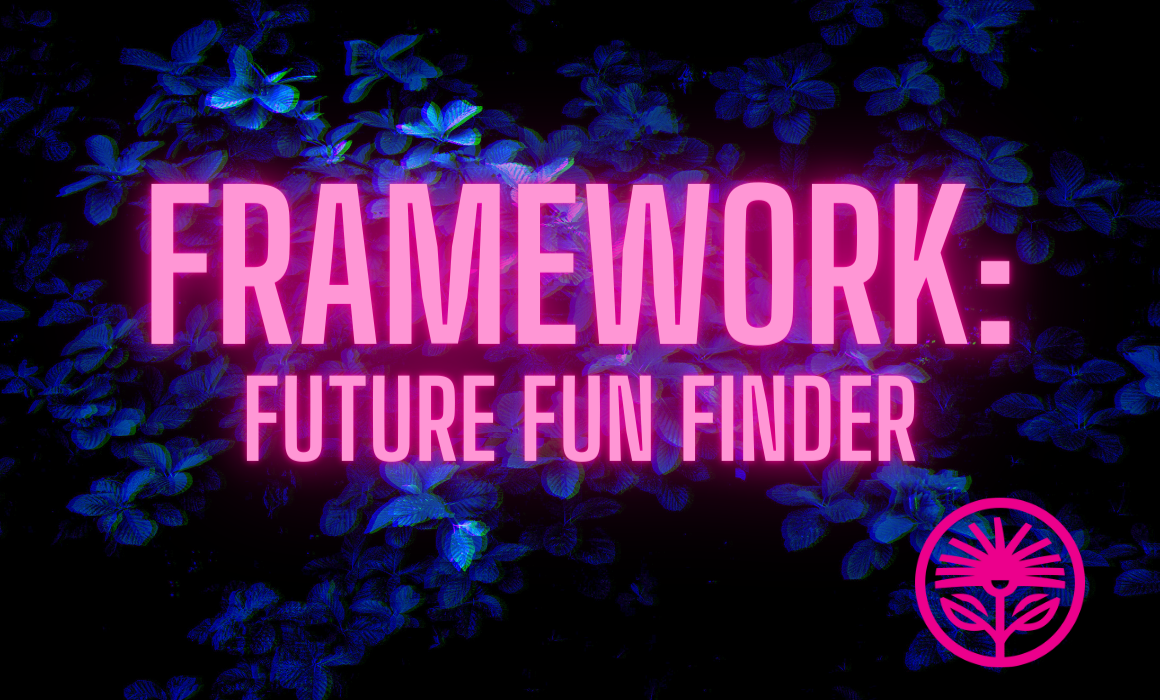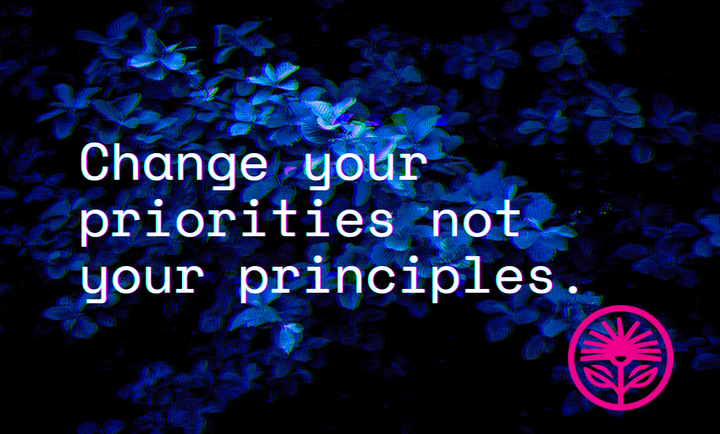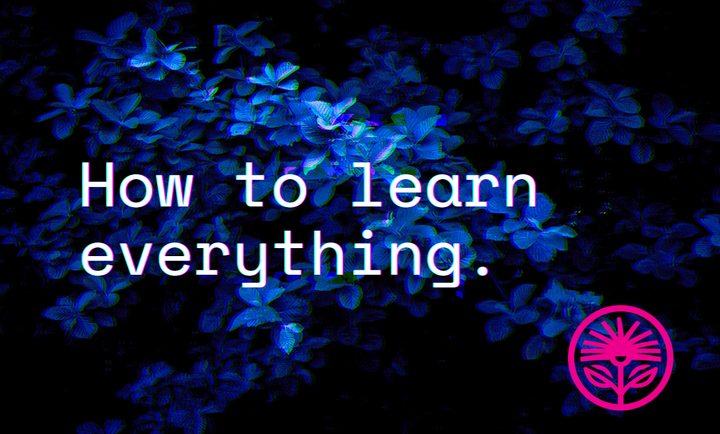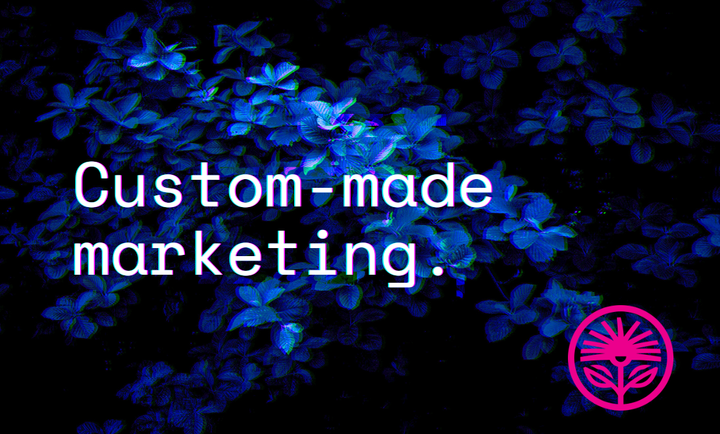Framework: Future Fun Finder
Build your fun future with this framework

Last month’s ZERO Plan was a bit serious, so I’m starting today’s framework with a few fun facts:
Nokia started in 1865 as a pulp mill.
Nintendo was founded in 1889 as a playing card company.
And the first Sony-branded product was a transistor radio.
Change can get you pretty far.
And, as far as I see it, that’s the price of doing business. That’s the trade we make for getting to do what we do: We have to keep changing what, precisely, that is.
Today’s Future Fun Finder framework is about exploring ways our businesses can change—and how we can keep marketing and demonstrating our value—as technology, circumstances, and contexts change around us.
And it’s based on what we like, what we want to do, and where we already know we need to improve and upgrade.
It’s not explicitly about technology—you can get through the framework without referencing new tech at all. It’s about your expertise and value to your customers and how you can continue to translate and demonstrate it as your customers’ world changes.
Okay, but why Future Fun Finder? Why is fun the focus? Simply because I think fear is a bad motivator and “compulsion deadens enthusiasm” as one historian put it.
But hope and fun promotes what neuroscientist Tali Sharot refers to as the “GO Response.” The motivating, animating force that helps us make progress.
So if you know your business will need to change one day, why not make that day more fun?
Below you’ll see a series of questions and two example answers. Grab a sheet of paper or fire up a text editor and write down your own answers (you’ll need them again at the end).
1) PRESENT:
What do you do?
What’s your job/business and where do you specialize?
Example 1: Freelance copywriter (focusing on B2B blogs, case studies, newsletters, etc.)
Example 2: Event planner (focusing on large, high-end corporate events)
You:
2) FUTURE:
a) What’s your value?
What’s your expertise (in the words of your customers)? What do they notice and compliment you about, even if it’s not what you think is most important?
Copywriter: Fast and accurate writing that cuts to the chase
Event Planner: Calm and present at all times
You:
b) What are your values?
What’s your unique lens and approach (in your words)? What do you think is the real secret to your high quality work, even if nobody else consciously notices it?
Copywriter: I focus on making the writing fun and entertaining to read
Event Planner: I can envision how things and people will flow together during an event
You:
c) What’s your focus?
How does your value (for your customers) intersect with your values (for yourself)? Combine a + b in a way that makes sense.
Copywriter: I quickly create accurate copy (client value) that people actually read (personal values)
Event Planner: I’m calm and where I need to be (client value) because I can envision the overall picture (personal values)
You:
Okay, let’s take a pause here. When we sum up the copywriter’s example, they’re heading into the future quickly creating copy that’s fun to read.
So, they’ll want to ask themselves if writing quickly is a sustainable focus in a world of AI. In a world where there may suddenly be a glut of human writers looking for more limited opportunities.
But writing that’s fun to read? Could that more defendable? That’s much harder than being fast—and much more sustainable in a world of increasing competition.
For our event planner—is being ever-present and everywhere they need to be sustainable as technology changes? Or is envisioning the big picture still useful in a world where AI and computer vision can predict patterns, people, and movement better than we can?
What about your answer? Is the value you provide and are the values you hold still relevant years down the road?
So, the question becomes, how do we change how we demonstrate our value so we can keep doing it, in a way we actually want to?
3) FUN
a) What’s your fun?
What do you find fun about your work (that others probably wouldn’t)? Where would you like to spend more time, if you could?
Copywriter: I love pulling the scattered pieces of facts and stories together to create something uniquely valuable and interesting—it feels like solving a mystery
Event Planner: I love having time together with my clients to get to know them and share my enthusiasm and perspective on events with them
You:
b) What’s your obstacle?
What part of your work is not fun (that you currently feel you have to do anyway)?
Copywriter: I hate having to do rounds and rounds of revisions, or many variations on the same copy—I just want to do it well and then make meaningful improvements, not just do it over and over again
Event Planner: There’s a lot of paperwork that’s not fun to deal with, and constantly having to worry about things going wrong wears on you
You:
c) How will you make it fun?
How can what you find fun help make what you hate more fun? Combine a + b in a way that makes sense.
Copywriter: I’ll focus on my true skill and joy—solving the mystery (the fun). My clients won’t expect rounds and rounds of revisions (the obstacle) because they want their story told in my unique way.
Event Planner: I’ll focus on my true skill and joy—working with clients to make memorable experiences (the fun), and use technology and delegation to take some of the load off of the paperwork and detail (the obstacle).
You:
So we know where the future is taking us—to a place where we get to focus on what we love most, and where we’ve worked around, through, or over what we don’t like or isn’t sustainable.
But how do we make that work? How do we make that change?
4) YOU:
What’s your structure?
How will you head into the future from a place of positive change, not stubborn stasis? Combine 2c + 3c in a way that makes sense.
Example 1: I’ll be the copywriter who turns corporate text into captivating tales you can’t stop reading (the focus). When you work with me, you don’t just get a story. You get people to read it (making it fun).
Example 2: I’ll be the event planner who creates one of a kind experiences for one of a kind companies (the focus). When you work with me, you don’t just get an event. You get a milestone moment (the fun).
You:
In our first example, they started as a copywriter who focused on being fast and accurate. Now, as technology changes and moots some of that value, and competitors flood the market, they have an approach they can defend. That they can build and upgrade over time.
Our event planner started as a calm presence who was ever-present. Now, they’re a force for creating memorable moments, lowering the value placed on details and paperwork and focusing the value on the uniqueness, and the personal touch.
Of course, these are examples, chosen and contorted to fit the framework—so your answers will be different. And they don’t provide a definite path or a prescription.
They just provide another perspective.
So, ask yourself: What does the future of my value look like, and how could I continue to demonstrate it?
What changes will help me?
And what changes will distract me?
The path forward into the future can be one of fun and focus. Not fear or frustration.
If we look toward the future, focus on our fun, and keep moving forward.



